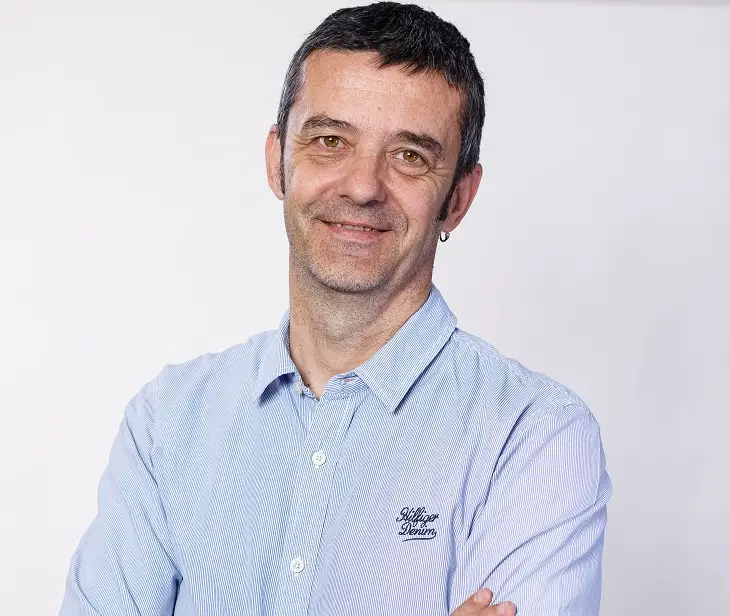As Moj Biz writes on the 8th of June, 2020, one of the initiators of the Voice of Entrepreneurs and Croatia 2.0 Initiative, Drazen Orescanin, answered a few questions sent to him from the MojBiz.com portal, and he did so in just a few minutes. If everything worked that way in Croatia, it would be heaven on earth. A successful entrepreneur and the initiator of what is currently one of the strongest entrepreneurial initiatives in the country analyses the current situation and proposes new measures.
The speed, success and efficiency of Drazen Orescanin is not only recognised in Voices of Entrepreneurs and Croatia 2.0 initiatives, Drazen Orescanin is one of the three founders and partners in the company Poslovna inteligencija (Business intelligence), a leading implementer of analytical IT systems in Croatia and the region with almost 150 employees in Croatia and subsidiaries across Europe – in Great Britain, Austria, Serbia, Montenegro, Bosnia and Herzegovina and Slovenia.
As the MojBiz.com portal is mostly focused on the issues of faced by the self-employed and entrepreneurs trying their hands in the world of start-ups, the portal has tried to cover this group with their questions.
A look into the meaningless provision that if you own 25 percent or more of a stake in a company you cannot be registered with the Croatian Employment Service…
MojBiz.com: The fact is that those who are self-employed are quite neglected in the whole situation. Their first reflex to the coronavirus crisis was closure. I know that it is easiest to restart a business entity, but why was there no solidarity of the large ones towards the self-employed? To them, sources of funding are usually limited to 3F or state incentives for self-employment. What is your general opinion on supporting self-employed entrepreneurs?
Drazen Orescanin: Every entrepreneur who had his business endangered due to the pandemic and the restrictions should have registered for the measures introduced by the government. Understandably, the problems faced by an entrepreneur employing 30 people and a self-employed entrepreneur are different, one needs to think about how to preserve 30 employees and the other needs to think about how they can preserve their own job. UGP was organised according to committees that support and monitor various industries, and there were also self-employed people in them.
Among our first 10 requests was a request to abolish the mandatory salary for directors of small businesses, but this was not approved by the government. We will continue to insist on this in negotiations with the new government after the elections.
It’s true that it’s also a meaningless provision that if you’re the owner of a 25 percent or more stake in a company you can’t be registered with the CES, so you must first delete the company from the register in order to be unemployed, which is insane. The status of a dormant enterprise needs to be introduced.
In a crisis, people will not decide to become self-employed with much ease…
MojBiz.com: Currently, there is a “measure” to encourage self-employment. Many potential entrepreneurs and the unemployed don’t know how to proceed with it, they’re stuck between the idea of starting an entrepreneurship or starting a business, a company, all at their own risk. They’re waiting on the stock exchange. What do you suggest to the CES, to the government?
Drazen Orescanin: It no longer makes sense to propose anything to this government because they can hardly wait for their mandate to end and to get rid of the hot potato. Existing business models are changing, it isn’t easy to expect that in this crisis people will decide to become self-employed. I know a lot of people who shut down or minimised the activities in their simple d.o.o. in the last couple of months, they either got a job with someone else or tried to find a job.
I would certainly suggest to the CES and the government to change the aforementioned rules in regard to the director’s salary and the right to apply to the CES.
MojBiz.com: Those who own crafts (obrts/obrtnici) and small businesses have almost been destroyed by the coronavirus crisis and the slow adoption of economic measures. The worst consequences of the coronavirus epidemic so far are being borne by small and micro-entrepreneurs and those in the service trader. The Croatian Chamber of Trades and Crafts (HOK) and the Croatian Chamber of Commerce (HGK) conducted surveys among their members that show that about two-thirds of their members are already feeling the effects of the coronavirus epidemic. What would so-called ‘fire measures’ that can be used for a short time would you propose as an Association? We’re talking about a period of six months to a year.
Drazen Orescanin: Were it not for the #OtpisNeOdgoda/#WriteOffNotDelay request by the UGP, the consequences for small entrepreneurs and those who own crafts would already be much greater, practically all fire measures except the minimum wage were adopted at the request of the UGP.
That way, people got some time to try to survive and find a new business model. Unfortunately, HOK and HGK didn’t show themselves in the crisis, but given their leadership and structure, this was not to be expected. If they had done their job, the UGP would never have come into being. The time of fire measures has now passed, now is the time for long-term, structural changes that the new government will have to implement.
MojBiz.com: In order to preserve liquidity, HOK and HGK have proposed a whole package of measures. The establishment of HBOR’s loan programme with minimum interest rates, which would provide all vulnerable business entities with the rescheduling of loans with the possibility of deferred payment, the establishment of a state fund to co-finance the salaries of employees of companies suffering from the coronavirus crisis to preserve liquidity… Aren’t these measures that should be constantly present to help entrepreneurs?
Drazen Orescanin: You have to keep in mind that in Croatia there is a pronounced weakness of institutions, there are simply not many capable people working in the public administration, since it is most often filled by uhljebs.
These people don’t understand the problems that entrepreneurs face, and the situation is not alleviated by the catastrophic state of the state treasury and Croatia’s 1.25 million retirees. There are a lot of things that should be available to entrepreneurs, but often institutions are a means to an end themselves, and from various scandals, we can see how positions are used to favour eligible people. In Croatia, it is necessary to change the anti-entrepreneurial climate and enable it to become attractive for business.
MojBiz.com: Apart from the fact that many companies are now closed, layoffs are increasing, tourism can be forgotten for this year, at least in the extent we’re used to, and the elections are another issue, a question that everyone has in mind: What kind of autumn can we expect? And then… what can be expected by the beginning of next year?
Drazen Orescanin: Well, a difficult autumn awaits us for sure, we’ll see the true scale of the crisis only in October and November, when the number of unemployed people will reach maybe 300,000 or more. Croatia cannot borrow indefinitely, it must start reducing public sector spending and introduce some substantial reforms.
Life will be very difficult for many by the time autumn rolls around, and the courage of the next government will determine whether this crisis will last ten years as the previous one did, or if we’ll manage to get out of it more quickly.
Authors: Drazen Orescanin and Mirjana Fijolic
Text processing and preparation: Mirjana Fijolic
Translator: Lauren Simmonds
For more, follow our business page.












